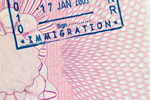China?s new tax laws causing expat confusion

China?s new tax laws causing expat confusion
Introduced at the start of the New Year, China’s reform of its Individual Income Tax system is the most significant change to be announced for decades, with expats left wondering about its effect on their finances. The new rules on personal taxation have introduced the concepts of ‘non-resident’ and ‘resident’, with an 183-day rule replacing the previous one-year ruling. This shortens by half the length of time foreign nationals must spend in the country in order to become liable for income tax. The revised regime also consolidates the previous four income categories – wages and salaries, authors’ remuneration, independent services and royalties income – placing all in one category entitled ‘comprehensive income’. The category holds seven tax brackets subject to progressive tax rates.
Self-employed expats will also need to note the new rules, as their earnings are now under the ‘income from operations’ label, and will be taxed separately at a prescribed rate along with other income categories such as dividends, incidental income, property letting income, investment interest and transfer of assets income. Each category will have its own prescribed rate. One major concern in China’s expat community was the effect of the new rules on the existing ‘five year exemption’ from taxes on worldwide income sourced outside China as well as in the country. As a result, the five-year rule has been extended by one year for expats living and working on the mainland, and includes holders of Hong Kong, Macao and Taiwan passports who’re now living and working in China.
Another downside of the new rules is that expats’ existing tax exemption allowances such as language training, education costs and housing can only be applied for up to the end of December 2021. Subsequently, allowances will only be given for children’s education, mortgage interest, serious illness healthcare costs, care for the elderly and rent. Also, China’s tax authorities now have more power to investigate tax avoidance including asset transfers and certain commercial arrangements. As a result, expat business owners are being advised to asses their need for changes to their systems and take appropriate advice where necessary.
Related Stories:
- Is Kuwaitization the unintended result of the oil price crash? - July 20, 2020
- Expats in Malaysia still banned from overseas travel - July 17, 2020
- HSBC Asia to cut back on internal expat relocations - July 16, 2020
- Tips on integrating for newly-arrived expats - July 15, 2020
Latest News:
- Tips on a trouble-free relocation as an expat overseas - July 20, 2020
- Expats find peace in the covid-19 refuge of Dahab town - July 20, 2020
- Is Kuwaitization the unintended result of the oil price crash? - July 20, 2020
- Expats unhappy abut changes to Korean points-based visa system - July 17, 2020
- Chiang Mai and Bangkok no longer bargain locations for expats - July 17, 2020
- Expats in Malaysia still banned from overseas travel - July 17, 2020
- Vietnam welcomes expats to its safe, affordable lifestyle - July 16, 2020
- Asian tiger economies reach out to expats in Hong Kong - July 16, 2020
- HSBC Asia to cut back on internal expat relocations - July 16, 2020
- Tips on integrating for newly-arrived expats - July 15, 2020


